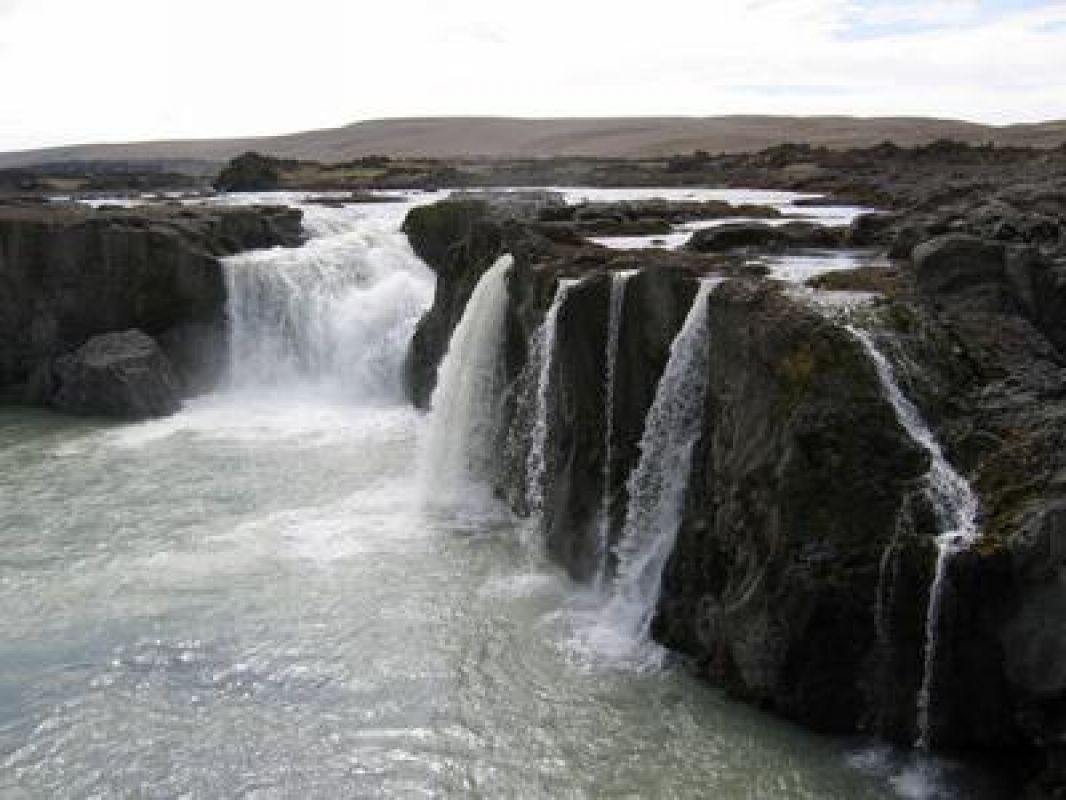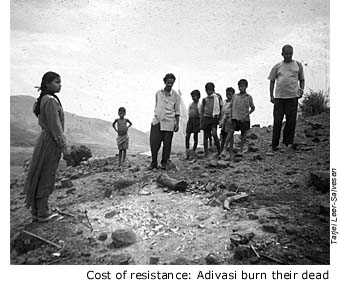Articles
Aug 19 2007
1 Comment
ALCOA, Bakki, Climate Change, Greenwash, Krafla and Þeistareykir, Pollution, Skagafjörður, Skjálfandafljót, Þjórsárver

Is the Energy on the Doorstep?
By Dr. Ragnhildur Sigurðardóttur
Many things have been said and written about plans for ALCOA´s aluminium plant at Bakki near Húsavík. One after another, important men have praised the idea and by now the only political parties not supporting it are the Iceland Movement and the Left Green party.
The propaganda of the supporters follows these lines: “utilise the national energy potential,” “the people of Húsavík have a right to an aluminium plant,” “the plant will only use energy drawn from the land nearby Húsavík, “damming of Skjálfandafljót and Jökulsá á Fjöllum is nothing but environmental propaganda”, “Geothermal energy has a low environmental impact”, “preparation work has been exceptionally well done.”
But how much truth do those slogans contain? Is there something more that needs to be looked into? Are the people of Húsavík, politicians included pushing the issues forward without really having looked at all the facts? Read More
Aug 18 2007
ALCOA, Arms Industry, Australia, Climate Change, Corruption, Cultural, Ecology, Economics, India, Jamaica, Laws, Pollution, Repression, Samarendra Das
In this exhaustive text, Felix Padel and Samarendra Das give a thorough analysis of the situation of the aluminium industry in India, its history as a global force of destruction intrinsically linked to the arms industry and its links to genocide. This is required reading for anyone with an interest in the aluminium industry, peace, and the desperate situation of the people of Orissa, India. Read More
Aug 18 2007
4 Comments
ALCOA, Amazon, Australia, Climate Change, Cultural, Dams, Ecology, Economics, Greenwash, Guðmundur Páll Ólafsson, hydropower, India, Jaap Krater, Pollution
Trouw (daily), Netherlands, 21 January 2007
Large dams have dramatic consequences. Ecosystems are destroyed and numerous people are made homeless, often without adequate resettlement. But it is yet little known that large-scale hydro-electricity is a major contributor to global warming. The reservoirs could, despite their clean image, be even more devastating for our climate than fossil fuel plants.

A few years ago, I spent a month in the valley of the Narmada River, to support tribal activists who have been resisting the Sardar Sarovar dam in central India for decades. These indigenous inhabitants, or adivasis, are desperate. In their struggle, inspired by Gandhi, they attempt to drown themselves when their villages are flooded. Death seems preferable to being forced to move from their valley to tin houses on infertile, barren soil. If they’re lucky, they can live on land that nobody else wants, the only available in the densely populated India. This forced resettlement, made necessary by ´progress´, is not unsimilar to what befell American Indians or the Aborigines in Australia. The consequences of mega hydro: cultures die and alcoholism, depression and violence remains.
Read More
Aug 17 2007
1 Comment
Actions, ALCOA, Australia, Barclays, Corruption, Cultural, Ecology, Economics, India, Jamaica, Norsk Hydro, Pollution, Repression, Samarendra Das, Surinam
By Felix Padel and Samarendra Das, Economic and Political Weekly, December 2005

“The evidence we present goes against the conventional history of aluminium, which tends to portray the industry as central to various countries’ economic power and prosperity, without understanding the financial manipulation and exploitation between and within countries, and the true costs.”
Few people understand aluminium’s true form or see its industry as a whole. Hidden from general awareness are its close link with big dams, complex forms of exploitation in the industry’s financial structure, and a destructive impact on indigenous society that amounts to a form of genocide. At the other end of the production line, aluminium’s highest-price forms consist of complex alloys essential to various ‘aerospace’/’defence’ applications.1 The metal’s high ‘strategic importance’ is due to its status as a key material supplying the arms industry. In these four dimensions ‘ environmental, economic, social and military ‘ it has some very destructive effects on human life.
Read More
Aug 13 2007
Arms Industry, Ecology, Greenwash, Pollution, Repression, Saving Iceland
The first issue of Saving Iceland’s magazine Voice of the Wilderness (download pdf) introduces all the key issues and speakers at the Saving Iceland 2007 Conference.
Aug 03 2007
Laws, Media bias, Repression, Saving Iceland
Marvin Lee Dupree, the Grapevine, Issue 11, 27 July, 2007
A great philosopher once said in a rather cryptic manner that nothing changes; one could say that our naked, tame souls cannot fathom this simple dictum of life, how our reality is merely constructed out of our simple hopes and childish beliefs. Meaning and change are part of the same illusion, stemming from a lack of ability to realise this uncomplicated truth. There is quite simply no single straightforward truth in life. In Buddhism, life is simply suffering until the final stage, Nirvana, is reached. Christianity invokes forgiveness and caritas or brotherly love. Islam is submission to the one true God head. For the neo-liberal it is money, stemming from greed, that is the alpha and omega. And for some the force is the truth. Others choose their own truth derived from a belief system as a cornerstone for their reality, or life, which is only a grain of sand in the whole cosmos. The many truths of the universe fill it up in a manner that recalls Archimedes’ famous sand corn experiment. Read More
Jul 24 2007
9 Comments
Actions, Africa, Arms Industry, Jaap Krater, Landsvirkjun, Rio Tinto Alcan, Saving Iceland, South Africa
Landsvirkjun Involved in Coal & Nuclear Powered RioTinto-Alcan Smelter in Africa
 HAFNAFJORDUR – Saving Iceland has closed access to RioTinto’s Straumsvik smelter in South-West Iceland. About 20 protestors have locked their arms in metal tubes and climbed onto cranes on the smelter site. Saving Iceland opposes plans for a new RioTinto-Alcan smelter in Keilisnes or Thorlakshöfn, expansion of the existing smelter, and a new coal and nuclear powered smelter in South Africa.
HAFNAFJORDUR – Saving Iceland has closed access to RioTinto’s Straumsvik smelter in South-West Iceland. About 20 protestors have locked their arms in metal tubes and climbed onto cranes on the smelter site. Saving Iceland opposes plans for a new RioTinto-Alcan smelter in Keilisnes or Thorlakshöfn, expansion of the existing smelter, and a new coal and nuclear powered smelter in South Africa.
“Protests against Alcan have been successful. Of course the people of Hafnafjordur have stopped the expansion of Straumsvik and recently, in Kaskipur, Northeast India, Alcan had to give up it’s participation in a bauxite mine because of protests against their human rights violations and environmental devestation. Alcan has been accused of cultural genocide in Kashipur, 1 because mining and dams have already displaced 150.000 mainly tribal people there 2. Norsk Hydro left the project when police tortured and opened fire on protestors, and then Alcan moved in,” says Saving Iceland’s Jaap Krater.
Read More
Jul 22 2007
ALCOA, Economics, Laws, Pollution, Repression, Saving Iceland, South Africa
Interview with Lerato Maregele and Attilah Springer
Grapevine.is, Issue 10, 13 July, 2007
Attilah Springer is a journalist and an activist. She is a part of the Rights Action Group in Trinidad and Tobago, which has fought a long battle against Alcoa over aluminium smelters in Trinidad and Tobago. She recently spoke at a conference for Saving Iceland where she documented the progress of the struggle against the aluminium industry in her country. She is currently staying at the International Summer of Dissent protest camp, organised by Saving Iceland. A Grapevine journalist sat down to speak with Atillah at their beautiful campsite in Mosfellsdalur, joined by Lerato Maria Maregele, an activist from South Africa who has been organising protests against Alcan in her own country. Read More
Jul 20 2007
Congo, Ecology, South Africa

Fishermen on the Congo at Kisangani. Campaigners fear any dam on the 2,600-mile Congo, aka ‘the river that swallows all rivers’, may harm fishermen such as these at Kisangani. Photograph: Schalk Van Zuydam/AP
By Jeevan Vasagar , The Guardian, February 25, 2005
One of Africa’s biggest electricity companies yesterday unveiled plans to build the world’s biggest hydro-electricity plant on a stretch of the Congo River, harnessing enough power for the whole continent.
The proposed plant at the Inga Rapids, near the river’s mouth in the western Democratic Republic of Congo, would cost $50bn (£26bn) and could generate some 40,000MW, twice the power of China’s Three Gorges dam. Read More
Jul 07 2007
1 Comment
ALCOA, Cultural, Economics, Landsvirkjun, Repression, Saving Iceland
“We have the passive mentality of the eternal colony.”
A talk delivered by Iceland’s foremost author Guðbergur Bergsson (1932-2023) at the Saving Iceland Conference 7 July 2007.
Jesus, a leader of an upcoming universal power knew that he would soon be physically destroyed when he heard women cry over his condition. He then turned to them and said: “Daughters of Jerusalem don’t cry over me, cry rather over you and your children.”
At that time the Roman Empire dominated the world and the lesson Jesus gave reminded people that destruction was not something that would only happen to him but also to future generations. He seems to have already known that in spite of being the Saviour of the world, his death, uprising and the ethics of his learning, destruction as such would go on having future and be constant in acting of Christian nations, at least the European.
Devastation was obviously the nature of great powers.
Till our days they succeed one after another and nothing has changed, people live in constant fear the land and they themselves would be destroyed. So daughters and sons of Iceland will still have to cry over their land which is only a small part of the world at this moment due to globalisation of economical growth which has in stead of promised glory brought widespread hate in form of terror, hate as ethics and revenge, a claim for justice. In our time hate has become a sense of justice.
Because of globalisation there is no reason why we in this country should only cry over our condition. Of course to everyone the nature of a homeland is dearer than the one of others. The world is too big for an individual to have true feelings for it, at least not in details. Feelings for faraway nations with strange sounding names tend to be abstract rather than real, more intellectual than emotional.
This is at least so in my case. I have sailed up the Yangtze River through the impressive XiLing Gorges before that beautiful phenomena of nature was going to disappear for ever in name of Chinas giant progress. I saw cities along the riverbanks, empty houses without dwellers; citizens had been chased away and the rivers turbulent brown water to supply power stations for heavy industry was to take their place. I listened to speeches of proud authorities and common people too. The population is obedient and as usual follow the words of mighty rulers. But at the end they become victims when it will be too late to resolve anything. Nations do not eye destruction until benefit brought to them is harm. Then women cry as daughters of Jerusalem but nothing can be repaired and no universal saviour.
I have seen Egyptian monuments destroyed at the Aswan dam and heard voices of pride but the poverty of neighbour people seemed to be as it always had been. In Spain during Franco’s time villages were wiped out to build dams in name of economical progress. The inhabitants protested, they climbed up to the rooftops to defend their homes and farmers were seen beating police with stick. But they lost. And now, years later, they still cry over the waterpower station producing electricity for heavy industry. Read More